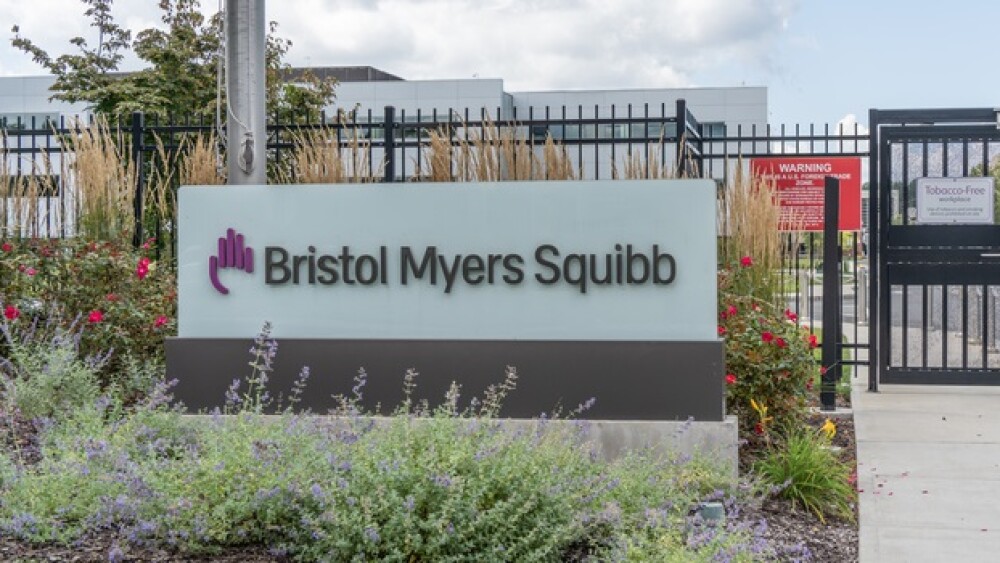The approval, which Bristol Myers Squibb reported on Thursday, positions the company to compete with Astellas and Pfizer’s Padcev.
Pictured: Bristol Myers Squibb building in Summit, NJ/iStock, arlutz73
Bristol Myers Squibb has won FDA approval for an Opdivo (nivolumab)-based combination in the most common type of bladder cancer, the company reported on Thursday.
The approval covers the use of the checkpoint inhibitor Opdivo in combination with the chemotherapy drugs cisplatin and gemcitabine in the first-line treatment of adults with unresectable or metastatic urothelial carcinoma. In a Phase III trial, patients who received the combination—followed by Opdivo as a monotherapy—lived longer than their peers who received cisplatin and gemcitabine.
Median overall survival (OS) was 21.7 months in the Opdivo cohort, compared to 18.9 months in the control arm. The improvement in OS, coupled to the progression-free survival and safety data, led the FDA to approve the Opdivo combination.
BMS called the Opdivo regimen “the first concurrent immunotherapy-chemotherapy combination approved for this patient population in the U.S.” However, the company will face competition in the bladder cancer space.
Chemotherapy has historically been the go-to first-line treatment for unresectable or metastatic bladder cancer. Pfizer won FDA approval for its checkpoint inhibitor Bavencio (avelumab) as an adjuvant therapy in patients who have undergone chemotherapy in 2020. The big change came in December 2023, when the FDA approved Padcev (enfortumab vedotin-ejfv) in combination with Keytruda (pembrolizumab).
The FDA approved Astellas Pharma and Pfizer’s Padcev, a nectin-4-directed antibody-drug conjugate (ADC), in combination with Merck’s checkpoint inhibitor after seeing Phase III data. In the study, the median OS in the Padcev-Keytruda cohort was 31.5 months, almost twice as long as the 16.1-month median survival in patients who received platinum-based chemotherapy.
Speaking at Pfizer’s Oncology Innovation Day last month, Thomas Powles, professor of urology cancer at the University of London, called the results “by far the most impressive data we’ve ever seen in urothelial cancer.” The 53% reduction in risk of death is “unprecedented,” Powles said. He expects the data to drive a switch from chemotherapy to the Padcev-Keytruda combination.
While cross-trial comparisons can be misleading, median OS in the Opdivo study was almost 10 months shorter than in the Padcev trial. Some patients are ineligible for cisplatin, making them likely candidates for Padcev. The Phase III study of the ADC enrolled cisplatin-eligible and ineligible patients, positioning Astellas and Pfizer to compete with BMS for people who can take the chemotherapy drug.
Guru Sonpavde, medical director of genitourinary oncology at the AdventHealth Cancer Institute, said the Opdivo data suggest the checkpoint inhibitor “has the potential to change how metastatic or unresectable UC is treated for certain patients” in a statement in BMS’ announcement about the approval.
Nick Paul Taylor is a freelance pharmaceutical and biotech writer based in London. He can be reached on LinkedIn.






